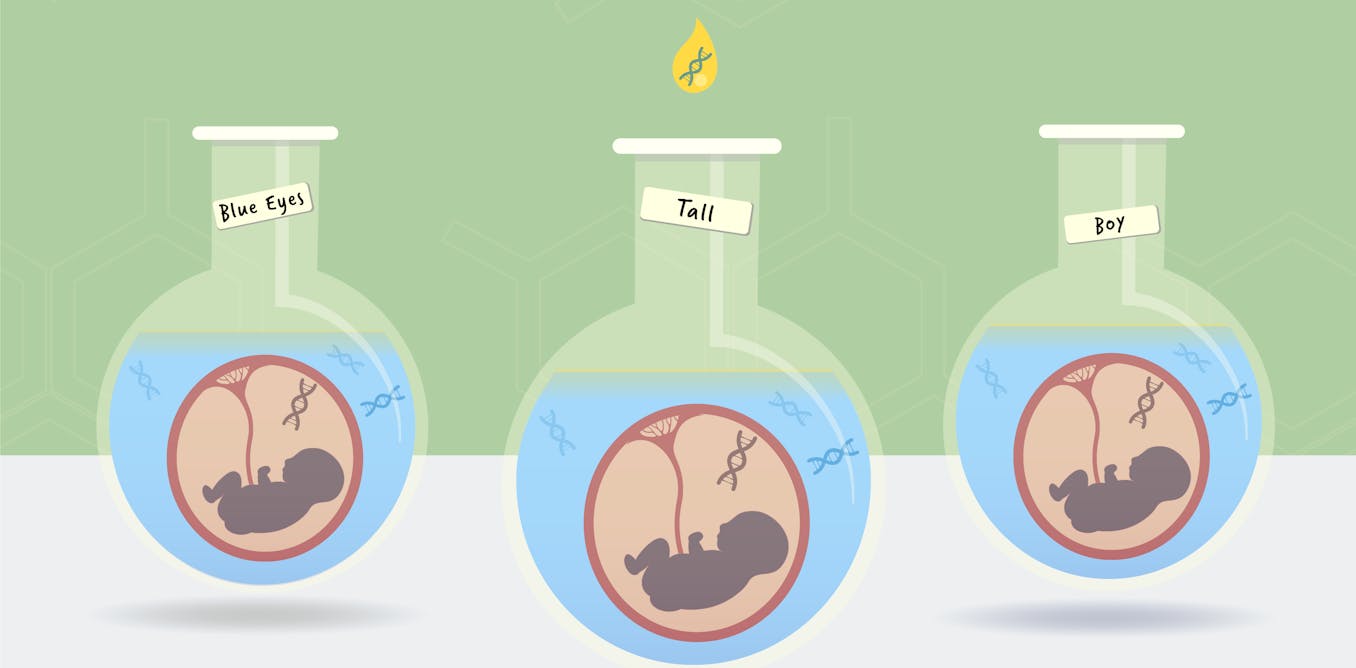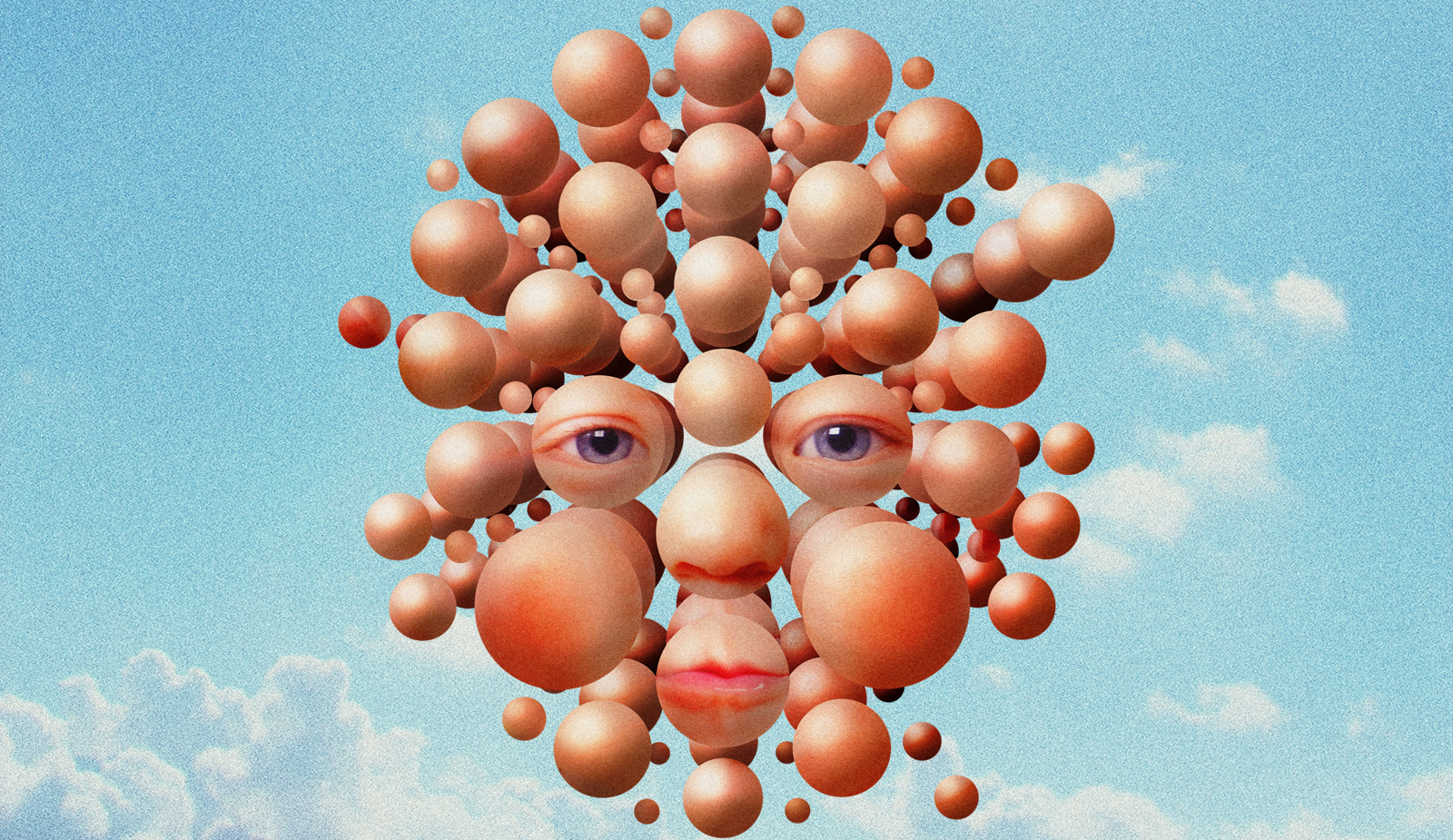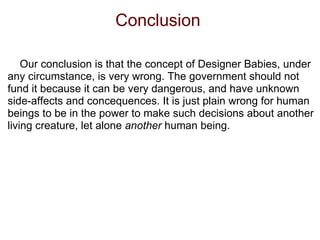Designer babies, also known as genetically modified or genetically engineered babies, refer to the practice of using genetic engineering techniques to selectively alter the genetic makeup of a human embryo in order to produce a baby with desired traits. This concept has long been a topic of ethical debate and controversy, with many arguing that the practice is fundamentally wrong.
One of the main arguments against designer babies is that it could lead to the creation of a society with a narrow definition of what is considered "ideal" or "normal." By allowing parents to select certain traits for their children, such as intelligence, physical attractiveness, or even gender, it could lead to a societal pressure for everyone to conform to these predetermined standards. This could result in the stigmatization and discrimination of those who do not meet these standards, leading to further inequality and social division.
Another concern with designer babies is the potential for abuse and exploitation. There is a risk that the technology could be used for eugenic purposes, with certain groups or individuals being excluded or marginalized based on their genetic makeup. This could also lead to a further widening of the gap between the rich and the poor, as only those with the financial means would be able to afford the expensive genetic engineering procedures.
There are also potential health risks associated with designer babies. While scientists have made great strides in understanding the human genome, there is still much that we do not know. Altering an individual's genetic makeup could have unintended consequences, such as unexpected health problems or disabilities. In addition, there is a lack of long-term data on the effects of genetic engineering, as the technology is still relatively new.
Finally, many argue that designer babies go against the fundamental principles of human dignity and autonomy. It is often argued that every person has a right to their own unique genetic makeup, and that it is not up to us to manipulate or alter it. There are also concerns that the practice could lead to a loss of diversity in the human population, as certain traits may become more prevalent due to selective breeding.
In conclusion, the practice of designer babies raises a number of ethical concerns and has the potential to create significant social, health, and moral problems. While the technology may offer some potential benefits, the risks and uncertainties associated with it far outweigh any potential gains. It is important that we carefully consider the ethical implications of this technology before pursuing it further.

:format(jpeg)/cdn.vox-cdn.com/uploads/chorus_image/image/51456651/shutterstock_51577015.0.jpg)




